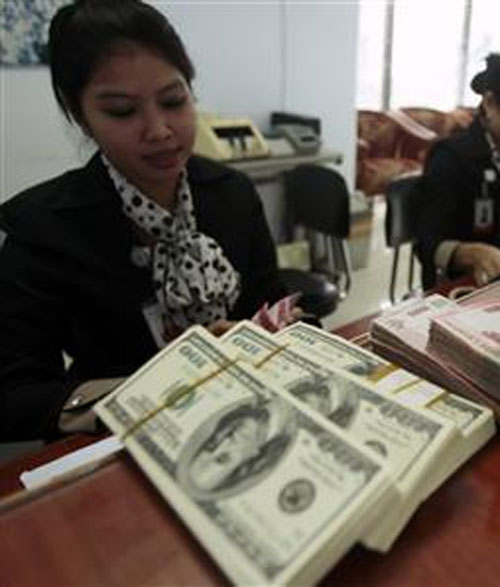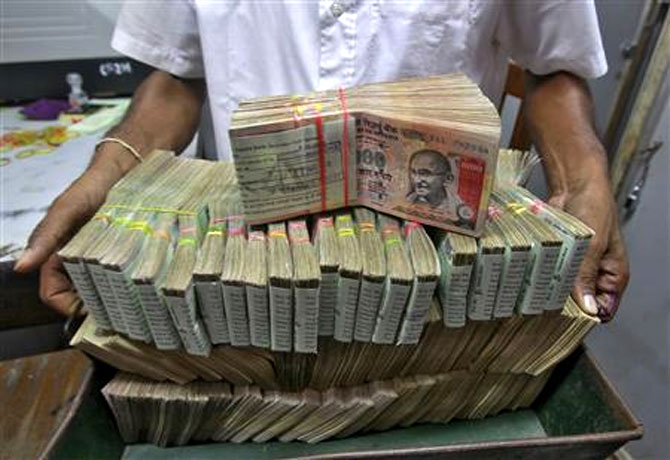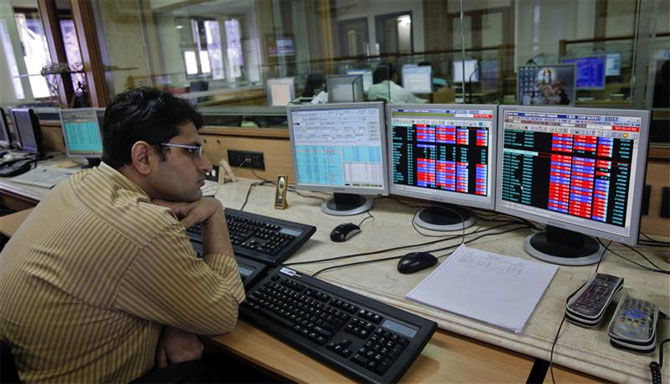
In the past two months, since April 1, the foreign institutional investors (FIIs) have pumped the equivalent of something over Rs 18,000 crore into Indian equity. The Nifty is up by eight per cent over that time period, as a result. The rupee is also up versus the dollar by around 2.5 per cent.
This is predictable given the FII inflows and no massive pressure on the external front. Forex reserves have grown through that period as well.
It’s not surprising that the rally has had a very positive effect across sectors. However, the currency trend has also had a negative impact on exports, which have flattened as the rupee got stronger. As a result, export-oriented businesses like information technology (IT) and pharmaceuticals have underperformed the broader market.
Their rupee-denominated profits and revenues will be lower and these businesses might also suffer loss of demand if the strong rupee leads to uncompetitive pricing.
Click on NEXT for more...

The rupee trend could be secular and sustainable or temporary. If there is a sudden spike in the price of global crude oil or gas prices, the rupee will be hit, for example.
But assuming there’s no crisis, and FII inflows continue and foreign direct investment also starts coming in, there will be a point where the Reserve Bank of India (RBI) will want to intervene to shore up the dollar. This is not simple. Every time RBI buys dollars, it pushes the rupee down and also boosts forex reserves and that sounds good.
But buying dollars also releases more rupees into the market. The rise in rupee money supply could fuel inflation. So, RBI will have to offer treasury bills (or similar instruments) to take that excess rupee supply off-market all over again.
These processes (buying dollars, selling T bills) are difficult to coordinate exactly and there will always be over-shooting and under-shooting of whatever levels RBI targets.
Click on NEXT for more...

There is always some end-of-month (EoM) downwards pressure on the rupee because that is when the public sector oil marketing companies like BPCL, HPCL, and Indian Oil source their imports and this means they buy dollars in quantity. That pressure is likely to culminate in the next three to five sessions, with the forex monthly settlement due on May 28.
The rupee is due for a bounce versus the dollar during this period and it could be sharp, as the currency has dipped sharply. One way to try and exploit this is to simply buy the dollar-rupee May futures contract – that long position will gain if the dollar appreciates.
However, this is a very high leverage position and the dollar could fall further before it turns around. We don't know where RBI would think it fit to intervene, for example and where the bulk of crude buying will come. Timing this trade could be very difficult.
Click on NEXT for more...

A safer way to try and exploit this possible EoM bounce in the dollar rate is to buy into the IT sector. IT stocks have taken a beating over the past few sessions (with some signs of a recovery on Tuesday).
Most of the leading lights of the IT industry can be bought in the futures segment if the trader wants leverage. Even so, the leverage is much less than in the forex futures segment.
IT stocks can also be bought and held for delivery if the trader so desires and positions in these can be averaged if required.
Devangshu Datta is a technical and equity analyst